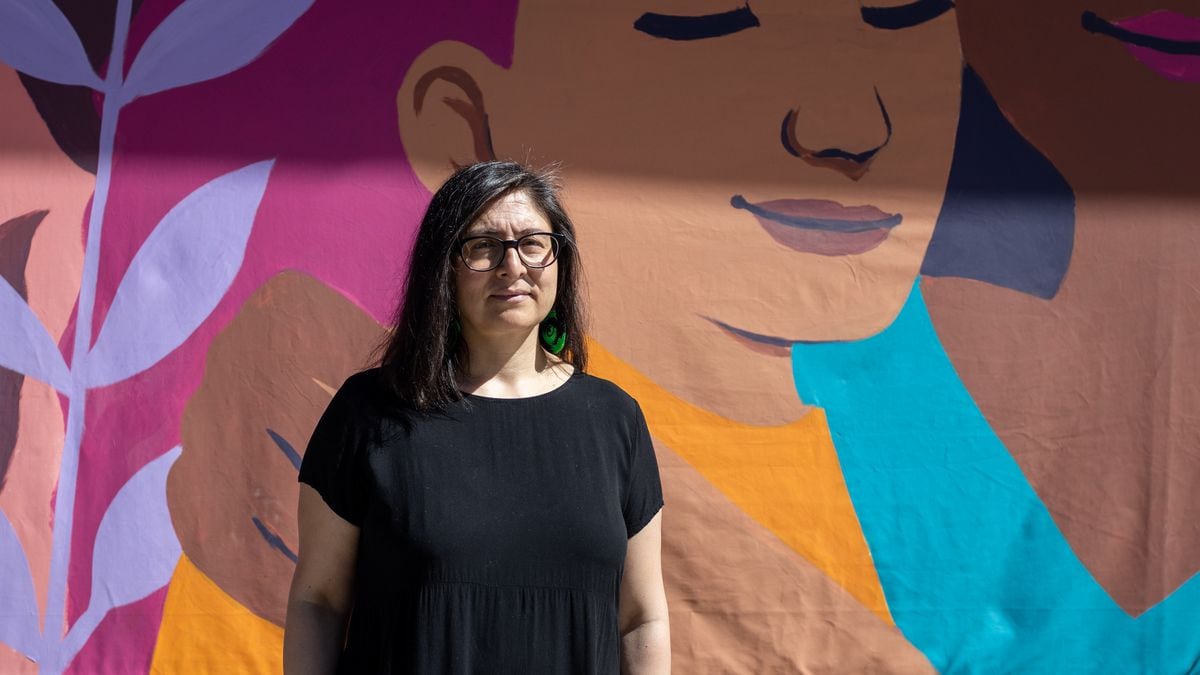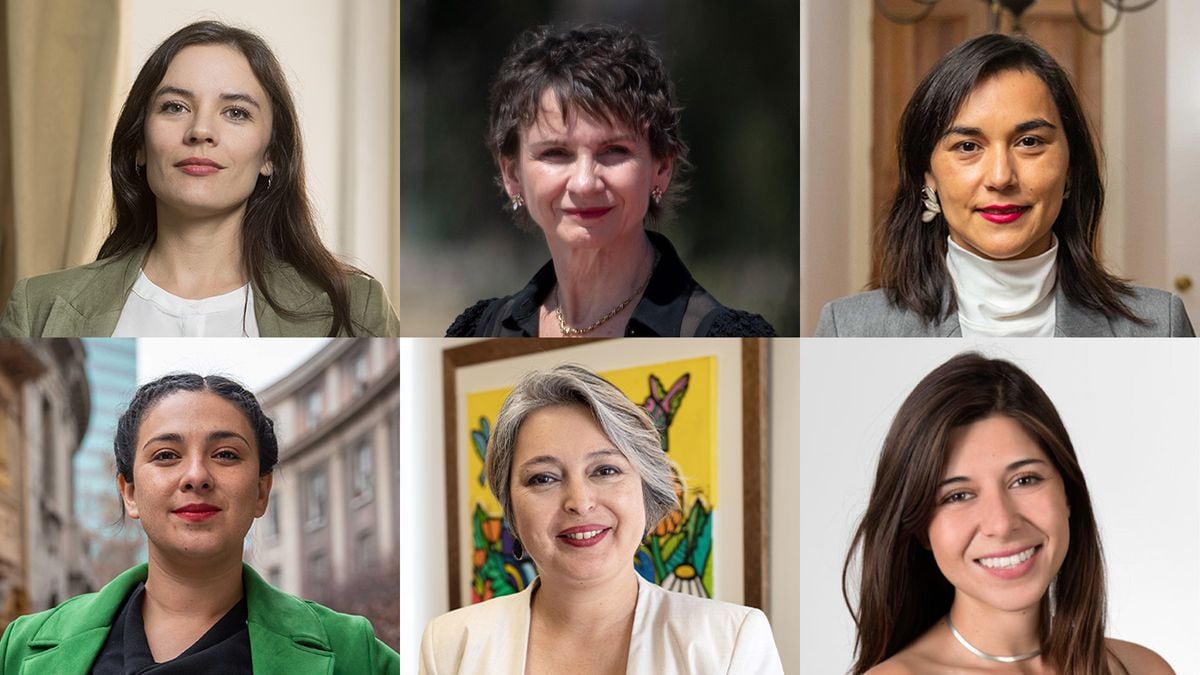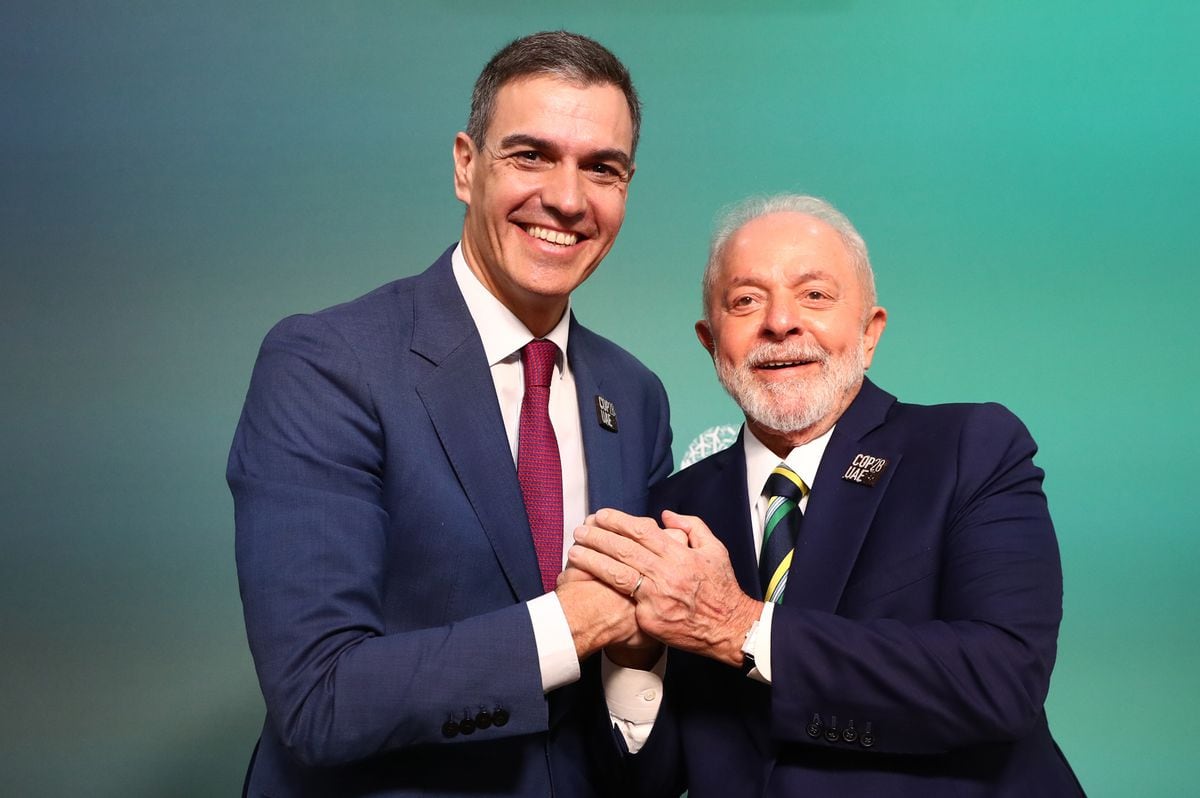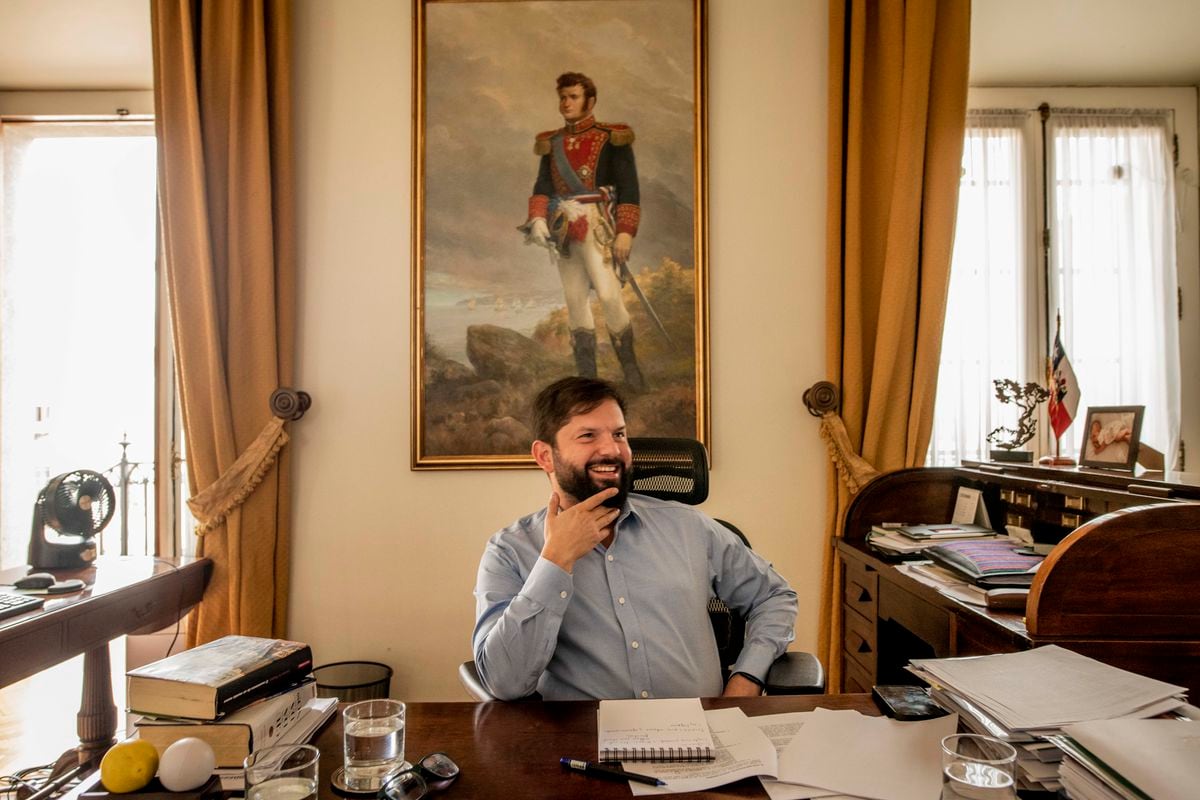Alejandra Castillo, philosopher and university professor in Chile, in the center of Santiago, Chile.Sofía Yanjari
The Chilean philosopher Alejandra Castillo has established herself as one of the referents of Chilean feminism.
She has a PhD in Philosophy and is a tenured professor at the Department of Philosophy at the Metropolitan University of Educational Sciences, UMCE. She directs the cultural magazine
Papel Máquina
and the
Archivo Feminista
collection of the Palinodia publishing house.
She is the author of essential publications to understand the struggles for gender equality – such as
Tiempo de feminismo.
Bodies, images and revolt
, recently published – this week she was in charge of commenting on the lecture by the acclaimed American feminist philosopher Judith Butler at the Diego Portales University in the Chilean capital.
In this conversation, which takes place in the cafeteria of the Gabriel Mistral cultural center, GAM, near ground zero of the October 2019 revolts, she analyzes the failure of a proposed Constitution that promised to become the world's first feminist Fundamental Charter.
"Although the text was made by a joint body and promoted greater gender equality," explains Castillo, "the political design in which the constitutional convention was framed emanates from the agreement of November 15, 2019 [in the midst of the social outbreak ] that put in the center an electoralist model of a corporatist and elitist democracy”.
Question
.
What do you mean by corporatist and elitist democracy?
Response.
The one that has interests that fit with those of global corporations and whose definition of equality promotes an order of injustice because it favors promotion according to class privileges.
The map that the design of corporate and elitist democracy traces is organized in a complex system of gender, class and race hierarchies at the center of which is a possessive individual whose calculation does not seek to disrupt such system of hierarchies, but to validate them, because in that validation validates itself: its position in the political, social and economic diagram.
Q.
What would have been, in your opinion, a better design for a body that drafted a proposal for a new Constitution?
R.
Perhaps it would have been important to have ventured to walk through the political design that was glimpsed in the figure of the constituent assembly.
If we go to the history of Chile, we find the constituent assembly of employees and intellectuals of 1925 and, especially, with a word that allows its organization: "The living forces of society."
This means that those who participate in the assembly do so in relation to collectives, organizations, etc.
Q.
Why was a pro-woman text not supported by Chilean voters?
R.
A participatory, supportive and egalitarian search logic does not occur in the corporatist and elitist democratic design we are talking about.
Freedom is understood as
freedom of choice
and rights are perceived as if they were
goods
, it does not seek to alter the body of politics from a feminist sign, but to reinforce the differences and hierarchies that assure the subject an identity in which he takes refuge and guard.
Q.
Could it be that society wants substantive changes, but that they do not represent a leap into the void?
R.
The type of analysis of the results of the plebiscite of September 4 that pays attention to the conservation of the past, uncertainty and management of fear is not different from the design of the politics of consensus and the post-politics that we met with the governments of the Agreement in Chile.
Q.
And what opportunity was lost, in your opinion, for Chilean women?
R.
The constitutional proposal gave us the opportunity to give ourselves a Constitution without military intervention and to leave behind an ominous Constitution that was approved and promulgated under the violence of a regime that detained, kidnapped, murdered, and made people disappear.
It gave us the opportunity to restore a common space violated, first, by the dictatorship and, later, administered by the [centre-left] Concertación governments with the return of democracy from 1990. It gave us the opportunity to abandon politics of State of maternal obligation and, with it, allowed the necessary redefinition of sexual difference.
Finally, it gave us the opportunity to explore other modes of politics, economics and cultural practices destabilizing the limits of the public and the private,
Q.
What is the Chilean feminist agenda now?
R.
The institutional feminist agenda has the important task of interrupting the inertial reproduction of institutionalized patterns of gender injustice.
This task must be carried out in each of the places where the State takes place: education, Justice, health, social security, the same institutions, the design of the city.
Q.
What is your opinion of the Government of Gabriel Boric, who has declared himself a feminist?
R.
I do not believe that the Government of Gabriel Boric is feminist, because I do not believe that a Government can be feminist.
Feminism is always an alteration to the logic of the Government as well as to the reason of State.
Feminism is an excess to those logics, to that reason.
Q.
And how do you evaluate the first eight months in power of this Administration?
R.
In these eight months, if there was a romance between the left and feminism with the promise that the Government of Gabriel Boric contained, that is over.
This term is due to the notorious turn of the Government towards the well-known policies of the liberal consensus that end up favoring the already favored.
It seems to me that the Boric government has abandoned a policy of equality in favor of a tweet media performance of a
personal style
that assumes, once again, that old recipe for a policy of closeness and empathy – arriving by bicycle at La Moneda , for example–, but which hands over, without obvious contradictions and at the same time, sovereignty to corporations with trade agreements such as TPP11 [to which the Government yielded, despite its initial position of rejection].
Q.
Do you think that, given the failure of the convention's proposal for a new Constitution, the government has the strength to carry out feminist transformations in Chilean society?
R.
Although the Government of Gabriel Boric is not feminist, there are many feminists from the government coalition parties that are part of the government machinery.
Therefore, it will be part of your job to install and defend a feminist position.
Q.
What are the most urgent inequities to resolve with a view to the rights of Chilean women?
R.
The first is forced and institutional maternity.
Well seen, the Chilean State is androcentric in its decision-making, but it is maternal when it comes to questioning women.
For this reason, the legislation and approval of abortion beyond the three causes is crucial.
It is necessary to transform the fossilized patterns of gender injustice that government institutions promote.
Likewise, it is crucial to incorporate the perspective
of care work
in the definition of the labor order.
Q.
And do you trust that the current government advances in abortion?
R.
It is crucial that abortion be legislated and approved in Chile.
I think it is the first step to transform the body of Chilean politics.
I recognize the difficulty, because the Boric government, after the electoral triumph of the rejection in the plebiscite, has given in more than necessary to the right in the search for consensus and governability.
Q.
A few days after this government began, the couple of President Gabriel Boric, Irina Karamanos, finally agreed to occupy the role of first lady.
What opinion did she have of this decision?
R.
.
It was a failed decision, from my perspective: with one hand feminism is affirmed and with the other the patriarchal figures of the State are maintained.
Q.
The new Chilean feminist wave exploded in 2018, before the social outbreak of 2019, and was the spearhead of the mobilization.
Where is all that strength now, especially the younger ones?
R.
This question brings us back to the problem of policy design.
That feminist force does not fit either with an electoral map or with the participation of feminists in the Boric government.
This feminist force is altering the hierarchies of the high and the low, the ways of thinking, how politics is understood, what it makes visible and what it hides.
I believe that the feminist force is inventing counter-institutional ways of intervening in the body of the common.
Q.
Is Chile less macho today than before?
A.
Without a doubt.
It seems to me that many of the feminist practices seek to critically unread the hierarchies of power.
It is there where machismo begins to recede with the interruption of the androcentric framework that organizes the sensitive order.
Follow all the international information on
and
, or in
our weekly newsletter
.













/cloudfront-eu-central-1.images.arcpublishing.com/prisa/KMEYMJKESBAZBE4MRBAM4TGHIQ.jpg)

